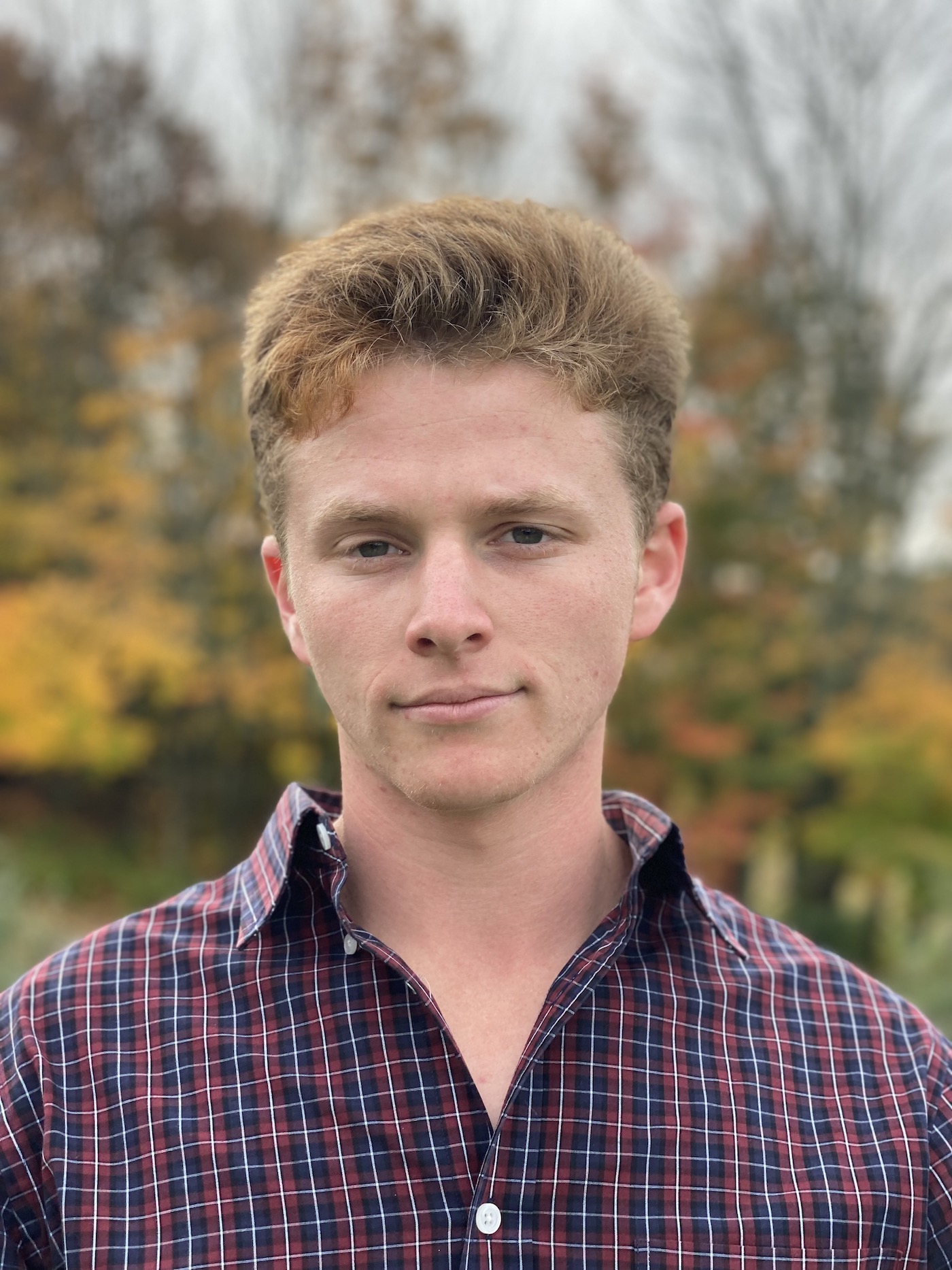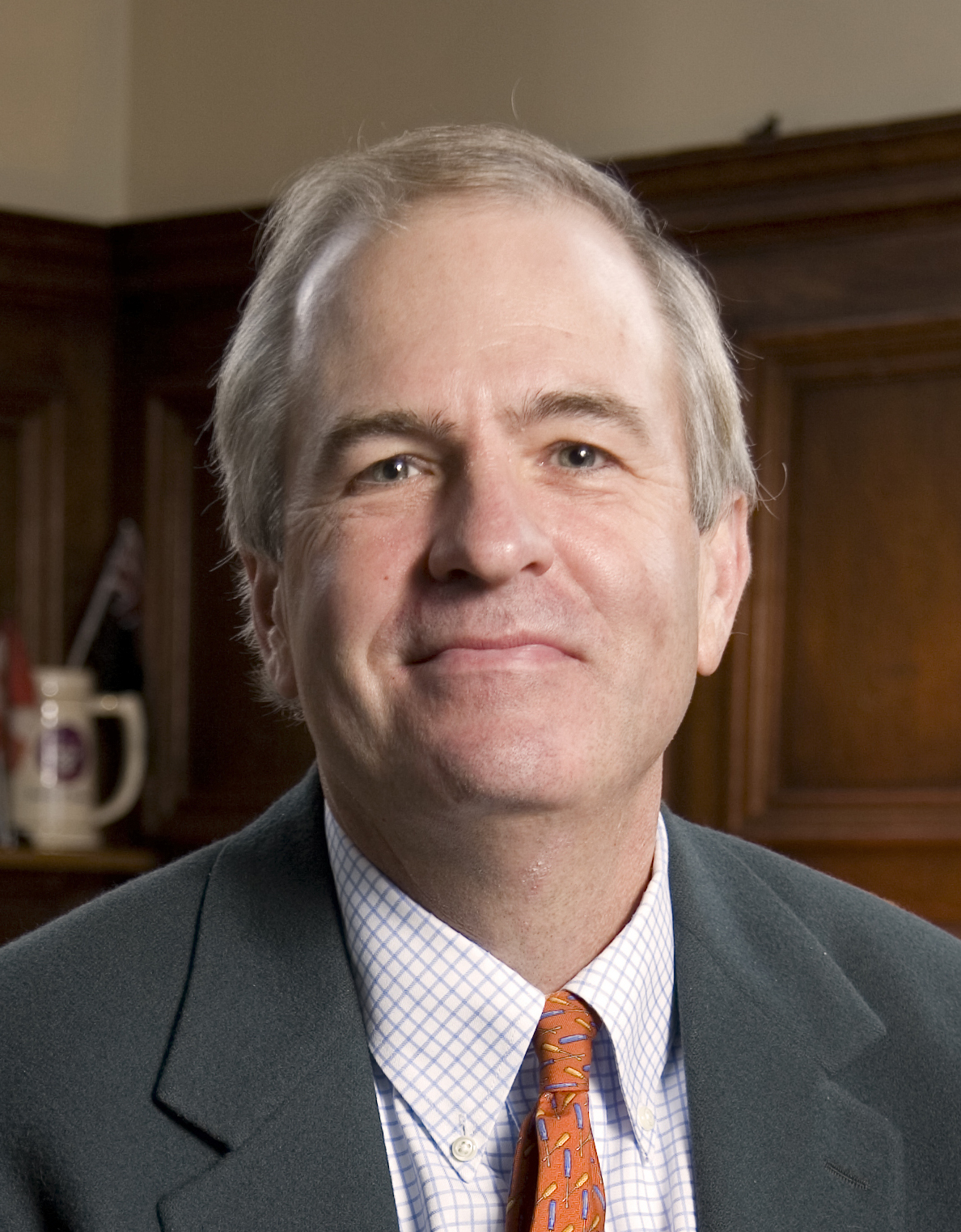Transboundary Air Pollution Treaties

The following is an edited conversation Brian Lam ’24 had with advisee and advisor. They discussed the best way to find a professor to work with, how to develop a fruitful research topic, and the joys of library research, among other topics.
Brian Lam ’24: Gavin, what inspired you to research this topic?
Gavin Kursman: What really inspired me was a question that I previously encountered in the class International Law with Professor Springer last fall. I greatly enjoyed learning about the treaty formation process and how agreements have come to be. It bored the heck out of my classmates, but I was always interested in it, and I took that is an initiative to go for another class. So I participated in Professor Springer's advanced seminar on humanitarian rights and environmentalism and international law [Advanced Seminar in International Relations: Law, Politics, and the Search for Justice]. In that seminar, I focused on the 1979 Convention on Long-range Transboundary Air Pollution for my main project, and through that research, identified multiple different protocols and did a deep dive into the organization and regime as a whole.
But a question that I identified in my review for that was why were states incentivized to ratify at this time and not ten years prior? Why were certain states compliant and not others, despite seemingly being the same? Those were questions that I could not answer in my research over the spring.
So I took the opportunity this summer to dive into greater depth, to determine state factors as well as different mechanisms that implement real change. I'm technically looking at just three treaties: the US-Canada bilateral agreement of 1991, the Helsinki Sofia and Oslo protocols, and the Montreal Protocol.
Lam: Could you tell me what you see after completing this project and what it's going to be used for in the future?
Kursman: So when I jumped into this project, originally I was looking for, as Professor Springer called it, a silver bullet to international treaty formation. I almost wanted to create a playbook based on different factors for how environmental groups could push treaty formation based on what would most likely be approved by states.
However, as I quickly found in my research, there is no standard pattern. Every single one of these treaties has been a fifteen-year process from the moment that an environmental hazard was identified to the moment where physical policy was implemented and ratified. And each process had so many different political, economic, and scientific factors behind it. So with that lack of pattern, I am really beginning to understand the greater nuances of international law.
Lam: But so just to clarify, this is being used as part of your honors thesis? If you do decide to go down this route.
Kursman: Absolutely. I could very easily see myself writing an honors thesis on treaty formation, looking at these individual stories.
Lam: Why did you two specifically work together? Was this something on your end?
Professor Allen Springer: Gavin took the initiative. He clearly had this interest in the factors that would affect the effectiveness of treaties. He really focused on that in his spring seminar paper. And when I read the paper—it’s a very good paper—I saw that there was something missing. He had focused, understandably, on the formal structure of treaties, but didn't have the opportunity to get beneath the surface to understand how they came about or to look at the underlying economic and political context in which these agreements were set. And to his credit, what he did was say, ‘Okay, that's something I really want to do.’ So we talked about how to do that.
I think initially, he was hoping in his typically very ambitious way to talk about a lot of international agreements. So, there was just a little bit of a struggle in the first couple of weeks to see how to take the idea that he had but make it more manageable for a summer research experience. By wisely focusing his efforts on three basic treaty regimes and not trying to do too broad an analysis, he has really been able to get into greater detail this summer. That's given him some real insight into the overall process. And, presumably, it will help generate more hypotheses about what works and what doesn't work, which he can extend into his honors thesis.
So again, I think a lot of this is due to Gavin's own initiative to take my constructive criticism and turn it into a really good project.
Lam: How do you feel like you're guiding Gavin's projects, Professor Springer?
Springer: I think largely what I'm doing is trying to listen to what Gavin’s telling me about what he's finding, and looking at ways in which there might be useful comparisons made between the different agreements. I've mostly just tried to raise questions based on what he's telling me. The other thing is we've talked a bit about the kinds of sources that he can use to get into more detail and he's really uncovered a lot on his own and with help from librarians.
Because that's always an issue for people doing research on a topic like this, is how to get really good primary material. You can read secondary articles about treaty formation and treaty effectiveness. But to really get into these agreements, you have to look at the agreements and you've got to find other documents that help you understand better what was going on behind the scenes.

Lam: What are some ways other students can get involved with research like this, and what can they do to create learning opportunities the same way Gavin has?
Springer: One of the things I would encourage younger students at Bowdoin to do is get to the point where they're taking 3000-level seminars or 4000-level seminars so that they can do early research to generate the kinds of questions that Gavin is exploring now. It would be difficult to simply have somebody come to me saying, ‘I want to do something on international environmental policy. What shall I do?’ That is, unless they had taken either international environmental policy or another related class, in which they really had to struggle a bit with some of the material. [Springer noted that the department is developing more lower-level research seminars geared to first-years and sophomores so they can get that leg up earlier in their time at Bowdoin.]
Lam: Gavin is this a question you could offer insight on? How could you land a research opportunity with the professor during the summer or during the school year?
Kursman: The first important thing is, you have to have an interest in the subject matter beyond the general field. I think that also being in contact with a professor for longer than a semester is very beneficial for establishing that partnership in education. Also, my path at Bowdoin has been relatively unique in that I knew as soon as I got here that I wanted to study government and legal studies — so I had already gone through all the different class requirements. I had the opportunity to see the different concentrations within government, select my interest, and move forward with that faster than a lot of other students do within the curriculum’s timeframe. Especially for those students who are experimenting in different disciplines and taking classes in different departments. For students who have that concentration, I think it's a lot easier. But for students who are still exploring, I am not sure the best path. I think that having 2000-level seminars, as Professor Springer discussed, would definitely be helpful.
Springer: The other thing is that there are a lot of students out there, and this is something I've often cautioned against, who are doing double majors, where they're concentrating in two broad disciplines and trying to sustain those at the same time. In some cases, those double majors generate very interesting research questions that might lie somewhere between those two majors. But in other cases, there's a lot of coursework that you need to do to satisfy the two major requirements. So I think there may be a little bit of a trade-off there.
Lam: What's the most valuable skill you've learned Gavin?
Kursman: In terms of the most valuable skill that I've learned over the summer, I have to attribute it to my time with that [Data Services Librarian] Barbara Levergood and learning research techniques. Prior to this summer, my research at Bowdoin consisted of reading course materials and going into the Bowdoin library and using their online catalog and typing in a couple of words and maybe a document would pop up. Sometimes I'd find really cool stuff. But when I sat down with Barbara for the first time, she opened my eyes to how to approach research in a very methodical way. I found sources I never even knew I could access as a college student within government databases and in private databases.
Lam: How have you seen Gavin grow in your time working with him both as a student in the classroom and working with him during the summer?
Springer: Well, I think he became more critical of the approach he had taken earlier as he transitioned from the work he was doing in the seminar to the work that he was doing this summer. He just came to the realization that to do really good research, he had to focus his energies. And I think that's the kind of intellectual growth that ideally happens.